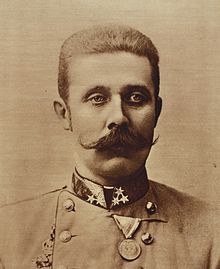Not only was WWI the first World War but it was the first man made war of the twentieth century
During this time the Allies (Russia, France and Britain) opposed the Central Powers (Germany, Austria-Hungary, and Turkey). WWI began July 28, 1914 and ended November 11, 1918- whose death rate was at NINE million.
 |
| Franz Ferdinand of Austria Hungary |
Military and diplomatic leaders from Serbia, Russia, and Germany saw war as the method to regain their honor.
The war quickly advanced as new methods were being developed for mass warfare like; the usage of gasses, heavy artillery and Arial warfare.
Video-WWI:firsts
Trench warfare was also developed during this time. The allies created front line trenches which were used for shooting and attacking The front line trenches were followed up by the support trenches where men and supplies used to support the front liners were kept. The reserve trenches contained emergency supplies and men if the front line should fail. All three trenches were connected by communication trenches which primarily was used for sending messages.
I've a little wet home in a trench
Where the rainstorms continually drench,
There's a dead cow close by
With her feet in towards the sky
And she gives off a terrible stench.
Underneath, in the place of a floor,
There's a mass of wet mud and some straw,
But with shells dropping there,
There's no place to compare,
With my little wet home in the trench.
Folklore song which originated from life in the trenches. Sung to the tune of My Little Grey Home in the West.





